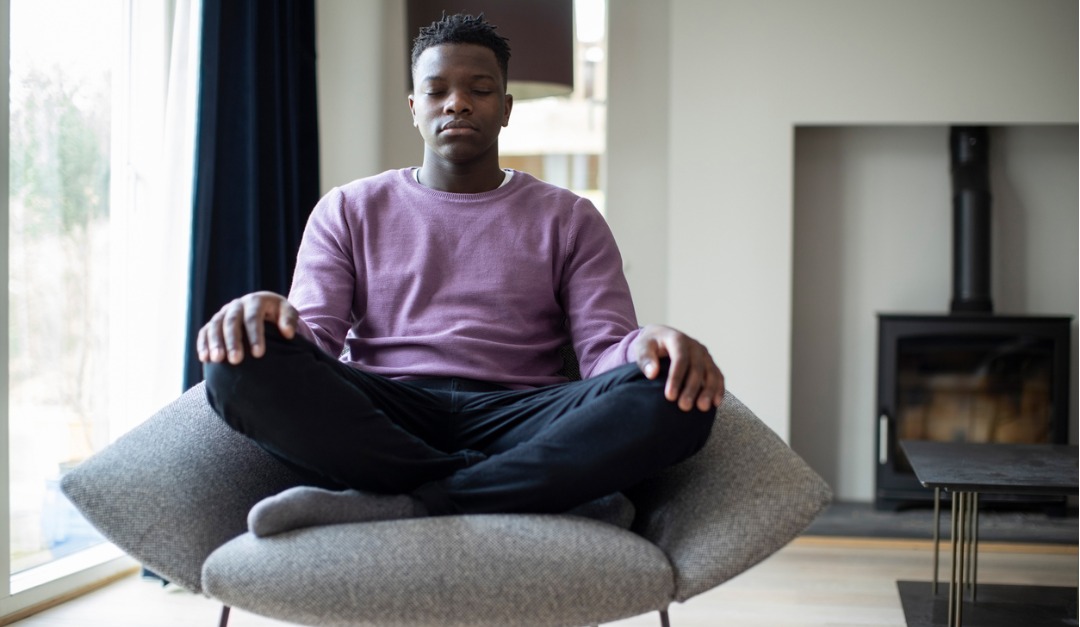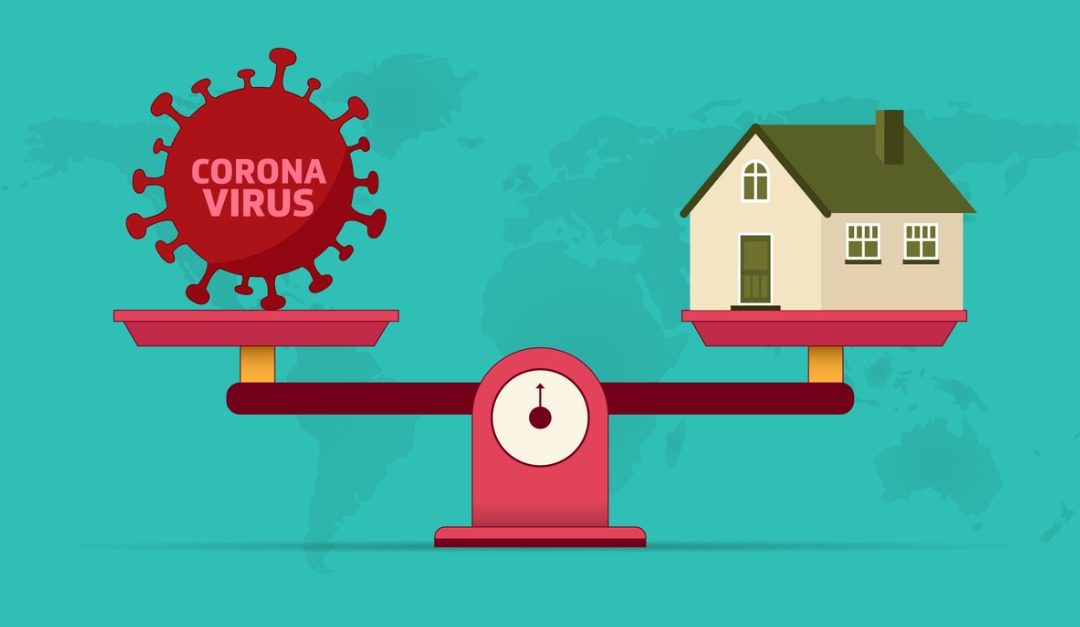While meditation may not usually be your thing, this ancient practice of mindfulness can be very helpful in coping with the various stressors brought on by the coronavirus pandemic.
Keep in mind, you don’t need to be a full-blown yogi to benefit from meditation. There are many meditation techniques that require little to no experience, even some that children can take part in. Here are a few simple practices that can help you focus on the present moment and reduce anxiety.
Learn to breathe. While the saying “just breathe” has become commonplace, there’s actually a specific strategy to employ. You can use this abdominal breathing technique at any point to thwart mounting stress or an anxiety attack. Simply breathe in through your nose and into your belly (put your hand on your stomach so you can feel it rise, which means you’re doing it right) for a count of three or four (longer if you can comfortably do so), then breathe out through your mouth for a second or two longer than your inhale. For example, inhale for a count of four, pause a second, exhale for a count of six.
STOP when you’re panicking. If you find yourself in the midst of an anxiety attack, deploy the STOP (Stop, Take a breath, Observe and Proceed) method: stop; take a few deep breaths as described above to calm down; once your mind is centered, observe what is actually happening around you; then proceed with handling the situation in a more rational manner.
Turn to guided meditations. Sitting in complete silence and meditating for even 10 minutes can be challenging for a beginner, as our minds are so easily distracted. Instead, go online and try one of the many guided meditations available where an instructor walks you through the meditation step by step. Guided meditations are available in a variety of lengths and topics, such as gratitude, stress relief, deep relaxation for sleep, etc.
Active meditation. The core principles of meditation – breathing, focus and stillness – can actually be accomplished while in motion. You can practice your abdominal breathing or repeat a mantra while taking a walk in the woods or even when washing the dishes. You can also try gratitude journaling as a form of meditation: Simply find a quiet space and write down three things you are grateful for each day. This not only has the benefit of calming you down, it also reminds you of the many things there are to be thankful for even in troubling times.











